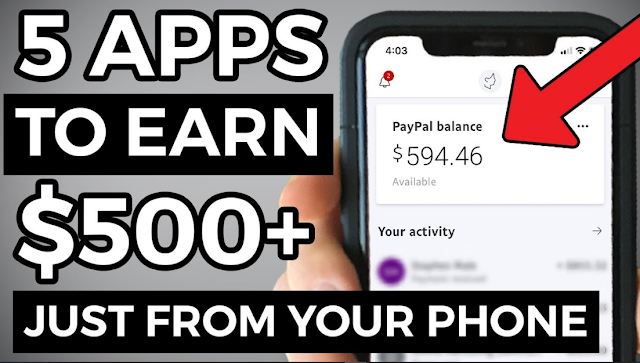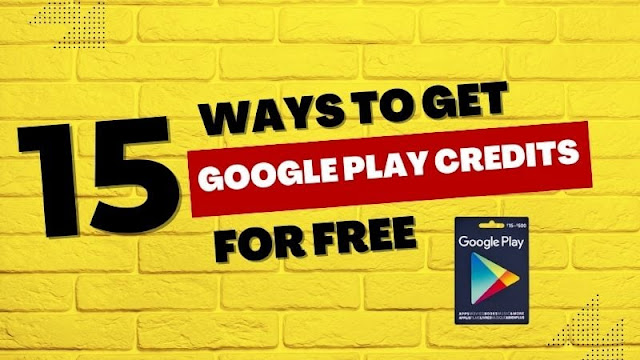How to earn easily through your smart phone
Mobile earning apps are applications designed for smartphones and mobile devices that allow users to make money or earn rewards through various activities. These apps offer opportunities to generate income or accumulate rewards by participating in tasks such as taking surveys, watching videos, playing games, shopping, completing offers, and more. Users can typically redeem their earnings in the form of cash, gift cards, or other rewards.
Mobile earning apps have gained popularity as a way for people to earn extra income or receive rewards in their spare time. They are often associated with the gig economy and the concept of earning money through the sharing or gig economy, where individuals perform tasks or services in exchange for compensation.
Examples of mobile earning apps include survey apps like Swagbucks, survey and market research apps like Survey Junkie, cashback and shopping apps like Rakuten, and various other apps that offer opportunities for users to earn money or rewards through their mobile devices. It's important to note that while some mobile earning apps are legitimate and can provide a source of income, users should exercise caution and research thoroughly to ensure the apps they use are reputable and trustworthy.
What types of mobile earning applications are available?
There are several types of mobile earning applications available, catering to a variety of interests and skill sets. Here are some common categories of mobile earning apps:
Survey and Market Research Apps: These apps pay users to participate in surveys, questionnaires, and market research studies. Users provide feedback on products, services, or various topics, and in return, they earn cash, gift cards, or rewards.
Cashback and Shopping Apps: These apps offer cashback or rewards when users shop through affiliated retailers. Users can earn a percentage of their purchase amount back or receive discounts and coupons.
Task and Gig Apps: Gig economy apps like Uber, Lyft, and DoorDash allow users to earn money by providing services such as ride-sharing or food delivery. There are also task-based apps like TaskRabbit, where users can perform various tasks for payment.
Micro-Job Apps: Micro-task apps like Amazon Mechanical Turk or Clickworker offer small, quick tasks that users can complete for a small fee. Tasks may include data entry, image labeling, or content moderation.
Game Apps: Some mobile games offer in-game currency or rewards that can be converted into real-world currency or gift cards. Players can earn by reaching specific achievements, playing games, or participating in tournaments.
Content Creation Apps: Apps like YouTube, TikTok, and Instagram offer opportunities for content creators to make money through ad revenue, brand partnerships, or sponsorships. Users can earn by producing and sharing content.
Cash Prize Apps: These apps, like HQ Trivia, offer users a chance to win cash prizes by participating in live trivia or game shows.
Investment and Stock Trading Apps: Some apps like Robinhood or Acorns allow users to invest in stocks, cryptocurrencies, or other assets. While these apps can generate returns, they also come with financial risks.
Affiliate Marketing Apps: Users can promote products and services through affiliate marketing apps and earn commissions on sales generated through their unique affiliate links.
Referral Apps: Referral programs within apps provide users with rewards for referring friends or new users to join the platform. The more referrals, the more rewards.
Cash for Unlocking Screens: Some lock screen apps pay users for unlocking their phones and viewing advertisements on their lock screens.
Education and Learning Apps: Some apps reward users for engaging in educational activities, like taking courses, learning languages, or completing quizzes.
Health and Fitness Apps: Health and fitness apps like Sweatcoin reward users for physical activity and steps taken. Users can earn rewards, including fitness gear or discounts.
It's important to note that while these apps offer potential ways to earn money or rewards, not all of them are equally reputable or profitable. Users should exercise caution, research the apps thoroughly, and be mindful of potential scams or privacy concerns. Additionally, the income or rewards from these apps often vary, and they may not provide a sustainable source of income.
How do they work?
The operation of mobile earning applications can vary widely depending on their specific focus and business model. However, here's a general overview of how they typically work:
Sign-Up: Users typically start by downloading and installing the mobile earning app from an app store. They are required to create an account, which may involve providing personal information, such as name, email address, and sometimes additional details.
Task or Activity Selection: Once registered, users can browse through available tasks, activities, or offers within the app. These tasks can include taking surveys, playing games, shopping through affiliate links, completing micro-jobs, or performing other activities relevant to the app's purpose.
Task Completion: Users choose tasks or activities they're interested in and complete them according to the app's instructions. For example, if it's a survey app, they would answer survey questions. If it's a gig app, they might start providing services or delivering goods. In the case of cashback or shopping apps, they would make purchases through the app.
Earning Rewards: Upon successfully completing a task or activity, users earn rewards. These rewards may come in the form of cash, gift cards, points, in-app currency, or other types of rewards, depending on the app.
Redemption: Users can redeem the earned rewards once they accumulate a certain amount or meet the app's redemption criteria. The redemption options may include cash withdrawals, gift card purchases, or other forms of compensation.
Referrals and Promotions: Many mobile earning apps encourage users to refer friends or promote the app to others. They often offer additional rewards or bonuses for successful referrals, helping to grow the user base.
Ad-Based Revenue: Some apps generate revenue through advertising. Users might view ads, take part in ad-related activities, or allow ads on their lock screens, with the app sharing a portion of the ad revenue with users.
Adherence to Terms and Conditions: Users must adhere to the terms and conditions set by the app. This includes following guidelines for task completion, ensuring honest and accurate information (especially in surveys), and complying with referral program rules.
Payment or Reward Delivery: Once the user requests a payout or redemption, the app processes the request and delivers the rewards according to the chosen method. Payments may be made through PayPal, bank transfer, or other designated means.
It's essential to note that the specific rules, requirements, and earnings potential vary widely among mobile earning apps. Users should carefully review the terms and conditions, payout thresholds, and privacy policies to ensure they are comfortable with how their data is being used and the app's payout system. Additionally, while some mobile earning apps offer opportunities for supplemental income or rewards, they may not replace traditional employment or provide a stable source of income. Users should approach these apps with realistic expectations.
What is the payment method?
Payment methods for mobile earning apps can vary depending on the app's policies and the region in which it operates. Here are some common payment methods that mobile earning apps may offer:
PayPal: PayPal is a widely accepted payment method used by many mobile earning apps. Users can link their PayPal accounts to the app and receive cash payments or transfer their earnings to their bank accounts through PayPal.
Gift Cards: Many apps offer the option to redeem earnings in the form of gift cards. Users can choose from a variety of retailers, restaurants, or online services. Common options include Amazon, iTunes, Google Play, and more.
Direct Bank Transfer: Some apps allow users to transfer their earnings directly to their bank accounts. This method is typically available in regions where bank transfers are supported.
Cryptocurrency: In some cases, mobile earning apps offer the option to receive earnings in the form of cryptocurrencies like Bitcoin or Ethereum.
Check: While less common, a few apps may offer the option to receive payments via traditional paper checks. Users would provide their mailing address for check delivery.
In-App Currency: Some apps use their in-app currency or points system. Users can earn and accumulate in-app currency, which can then be used to make in-app purchases or access premium features within the app.
Prepaid Debit Cards: A few apps issue prepaid debit cards that are loaded with the user's earnings. These cards can be used for purchases or ATM withdrawals.
Mobile Wallets: In regions where mobile wallets are prevalent, some apps may offer the option to transfer earnings to a mobile wallet like Apple Pay or Google Wallet.
Charitable Donations: Some apps allow users to donate their earnings to charities or causes they support.
Airline Miles or Rewards Points: Certain mobile earning apps partner with airlines or loyalty programs, enabling users to earn airline miles or rewards points.
It's important to review the specific payment options available within each app. The app's terms and conditions, payout thresholds, and regional availability can also influence the choice of payment method. Additionally, users should be aware of any associated fees, processing times, and tax implications when using these payment methods.





